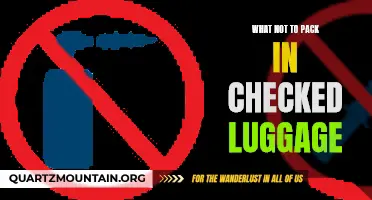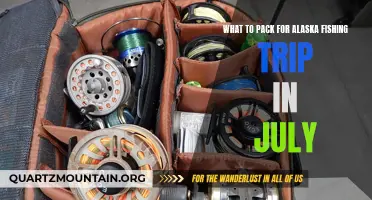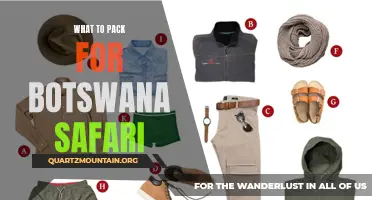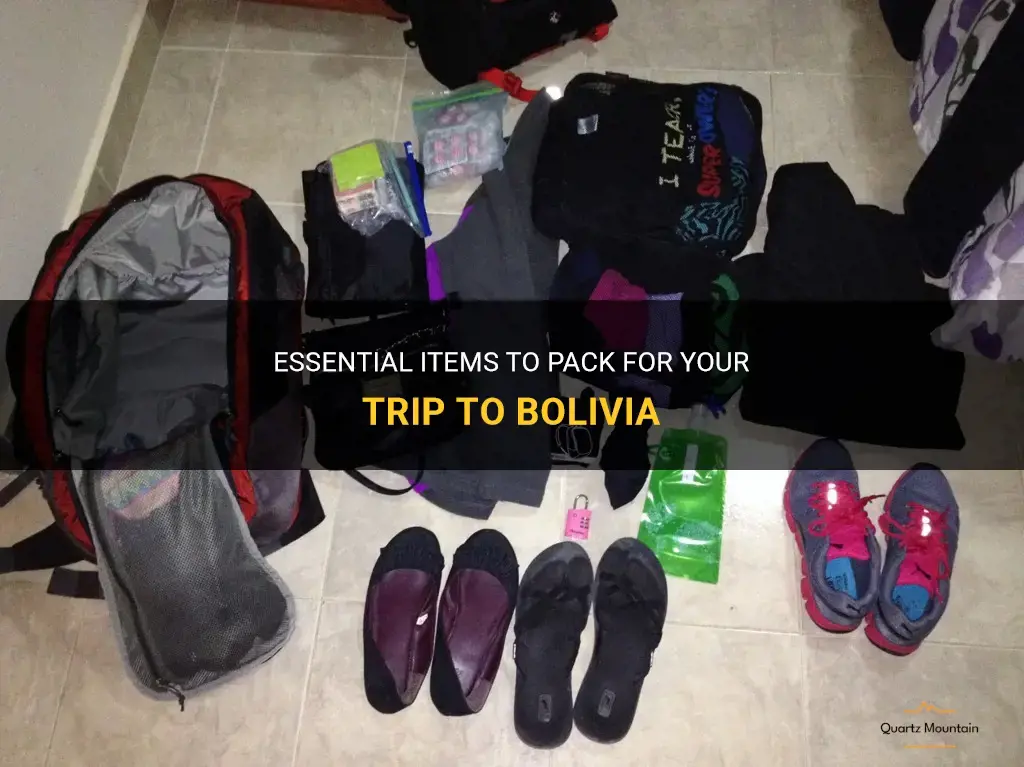
Planning a trip to Bolivia? Whether you're heading to the bustling streets of La Paz or the serene landscapes of Salar de Uyuni, it's important to be prepared. From altitude sickness remedies to proper hiking gear, this guide will ensure you have all the essential items packed for your adventure in Bolivia.
What You'll Learn
- What are the essential items to pack for a trip to Bolivia?
- Are there any specific clothing items or accessories that are recommended for the climate in Bolivia?
- What type of footwear is best suited for exploring Bolivia's various terrains?
- Are there any specific medical or health supplies that should be included in a packing list for Bolivia?
- What type of electronics or gadgets should be considered when packing for Bolivia?

What are the essential items to pack for a trip to Bolivia?
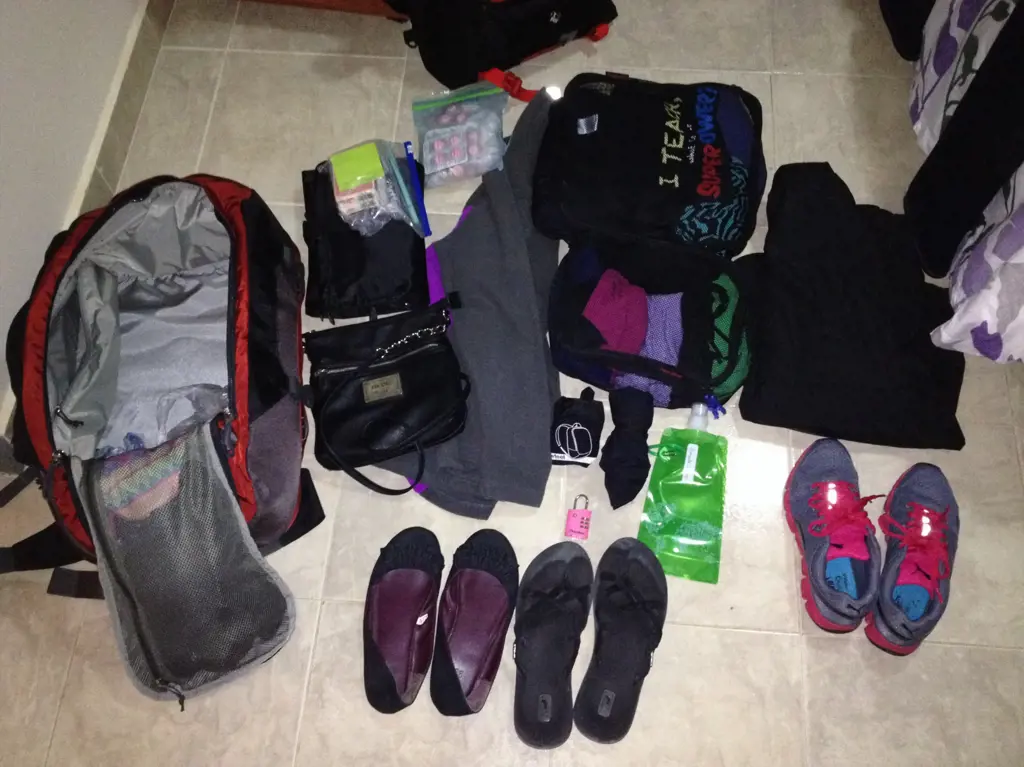
When preparing for a trip to Bolivia, it is important to pack the essential items to ensure a smooth and comfortable journey. Bolivia is a diverse country with varying landscapes and weather conditions, so it is crucial to pack appropriately for different situations. Whether you are exploring the stunning natural beauty of the Andes or immersing yourself in the rich culture of its cities, here are some essential items to consider packing for your trip to Bolivia.
- Clothing: Bolivia has a wide range of climates, from chilly high-altitude regions to humid lowland areas. It is essential to pack versatile clothing that can adapt to different weather conditions. Layering is key, so bring items like lightweight t-shirts, long-sleeved shirts, sweaters, and a lightweight jacket or fleece. Additionally, pack a rain jacket or poncho for unexpected showers, especially during the rainy season.
- Comfortable Shoes: Bolivia offers various hiking and trekking opportunities, so having comfortable and sturdy shoes is a must. If you plan on exploring the famous salt flats or hiking through the mountains, consider bringing hiking boots or sturdy walking shoes. Additionally, pack a pair of comfortable sandals or flip-flops for warmer days or relaxing by the lakeside.
- Travel Adapter: Bolivia uses different plug types than many other countries, so be sure to bring a travel adapter to charge your electronic devices. This will ensure that you can easily use your electronics without any inconvenience.
- Sun Protection: Bolivia is closer to the equator, which means the sun's rays can be quite strong. Sun protection is crucial, so pack sunscreen with a high SPF, a wide-brimmed hat, sunglasses, and lip balm with SPF. These items will help safeguard your skin and eyes from the harsh sun, especially at higher altitudes where the UV rays are stronger.
- Medications: If you have any prescription medications, be sure to bring an adequate supply for the duration of your trip. It is also advisable to pack a basic medical kit with essentials like band-aids, pain relievers, antihistamines, and any other medication you may require. Altitude sickness is common in certain regions of Bolivia, so consult your doctor about preventive measures or medication specific to altitude sickness before your trip.
- Cash and ATM Cards: While credit cards are widely accepted in larger cities and tourist areas, it is advisable to carry some cash for smaller establishments or in remote locations. Ensure that your ATM cards work internationally and inform your bank about your travel plans to avoid any issues with withdrawals.
- Insect Repellent: Some areas of Bolivia, particularly the lowlands, are prone to mosquitoes and other insects. Protect yourself from insect bites by packing a reliable insect repellent. Look for repellents that contain DEET for maximum effectiveness.
- Travel Documents: Essential travel documents include your passport, visa (if required), flight tickets, travel insurance details, and copies of all documents. Keep these documents in a secure place, and it is recommended to have electronic copies accessible on your phone or email.
- Snacks and Water Bottle: It is a good idea to carry some snacks and a reusable water bottle. Snacks can come in handy during long bus rides or hikes, and having a water bottle ensures you stay hydrated throughout your journey. Note that tap water may not be safe to drink in some areas, so consider purchasing bottled water or using water purification tablets if needed.
- Camera or Smartphone: Bolivia is a visually stunning country with unique landscapes, colorful markets, and vibrant festivals. Capture your memories by packing a camera or ensuring your smartphone has sufficient storage space for photos and videos.
Remember to pack light and smartly organize your belongings to make your travels in Bolivia more convenient. It is always a good idea to research the specific regions you'll be visiting to ensure you pack any additional items necessary for that area. By packing the essentials mentioned above, you can enjoy a seamless and enjoyable trip to the captivating country of Bolivia.
What to Pack for an Airstream: Essential Items and Must-Have Accessories
You may want to see also

Are there any specific clothing items or accessories that are recommended for the climate in Bolivia?
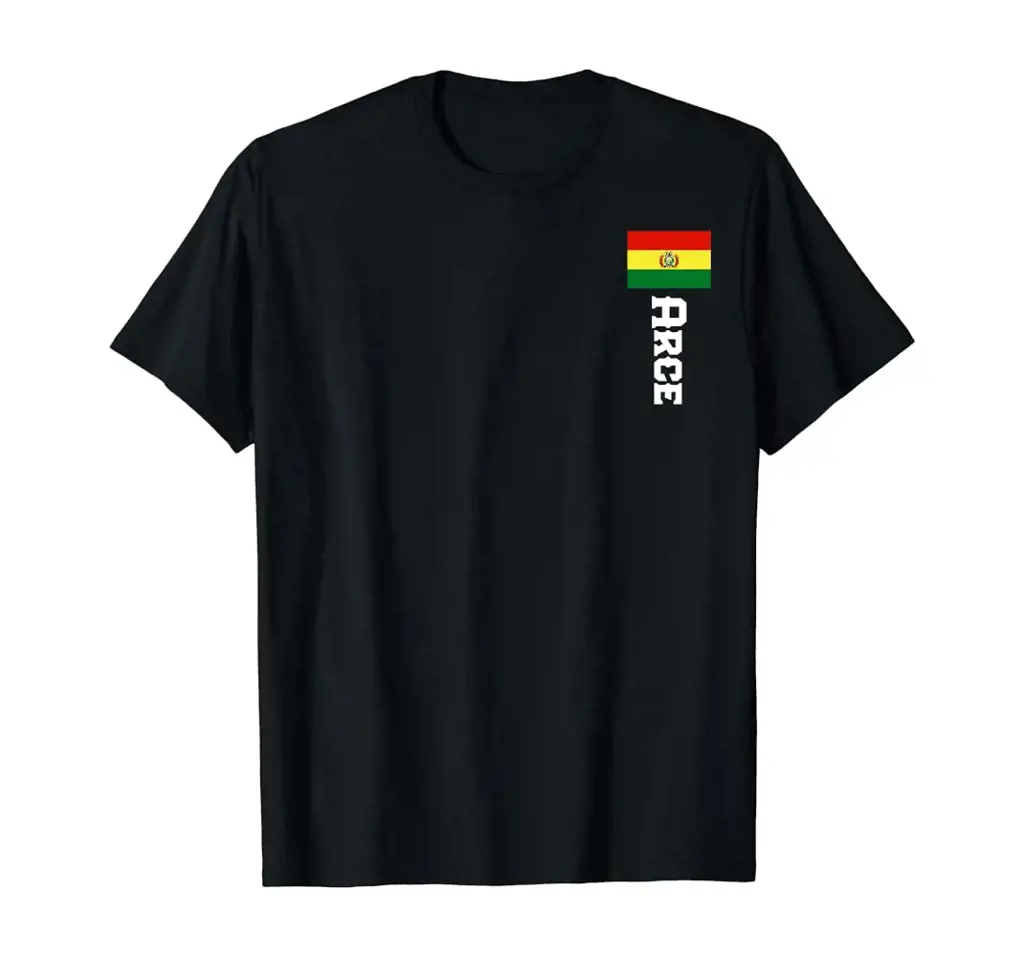
Bolivia, located in the heart of South America, has a diverse and unique climate due to its varying elevations and geographical locations. From the Andean Highlands to the sweltering Amazon Rainforest, Bolivia offers a range of climate zones that require different clothing and accessories. By understanding the specific climate in each region, travelers can ensure they are well-prepared for their visit to this beautiful country.
In the Andean Highlands, which include cities like La Paz and Sucre, the climate can be quite chilly due to the high elevation. It is important to pack warm clothing such as thermals, sweaters, jackets, and hats. Layering is essential as the temperature can fluctuate throughout the day. Additionally, a good pair of waterproof and insulated boots are recommended, especially if you plan to explore the mountains or take part in outdoor activities such as hiking or trekking.
On the other hand, the tropical lowlands of Bolivia, including the Amazon Rainforest, have a hot and humid climate. Lightweight and breathable clothing is essential to stay comfortable in this environment. Opt for loose-fitting shirts, shorts, and skirts made from natural fibers such as cotton or linen. A wide-brimmed hat and sunglasses will provide protection from the sun, while sunscreen and insect repellent are a must to prevent sunburns and bug bites.
In the Yungas region, which lies between the Highlands and the Rainforest, the climate is milder but still humid. Here, a mix of warm and cool clothes is recommended. Pack both long-sleeved shirts and lightweight pants for cooler days, as well as shorts and T-shirts for the warmer ones. It is also advisable to bring a waterproof jacket or a poncho, as the Yungas can receive heavy rainfall at times.
A good quality travel umbrella is also a useful accessory to have, as rain showers can occur unexpectedly in many parts of Bolivia. Additionally, a backpack or daypack is essential for carrying water, snacks, and any extra layers of clothing while exploring the different regions.
Regardless of the specific region you plan to visit, it is crucial to be prepared for temperature changes and potential weather conditions in Bolivia. Layering your clothing allows you to adjust to different environments, ensuring your comfort throughout your trip. Remember to also pack sturdy shoes for walking, as well as other essentials such as a reusable water bottle, a first aid kit, and any necessary medications.
To summarize, the climate in Bolivia varies greatly depending on the region. In the Andean Highlands, warm clothing and sturdy footwear are recommended, while lightweight and breathable clothing is essential in the hot and humid lowlands. The Yungas region requires a mix of both warm and cool clothing. Packing a travel umbrella, backpack, and other essential accessories will help ensure a pleasant and comfortable stay in Bolivia. So, before embarking on your adventure to this diverse and beautiful country, be sure to check the weather forecast and pack accordingly!
What to Wear: Essential Outfit Ideas for a Cruise Vacation
You may want to see also

What type of footwear is best suited for exploring Bolivia's various terrains?
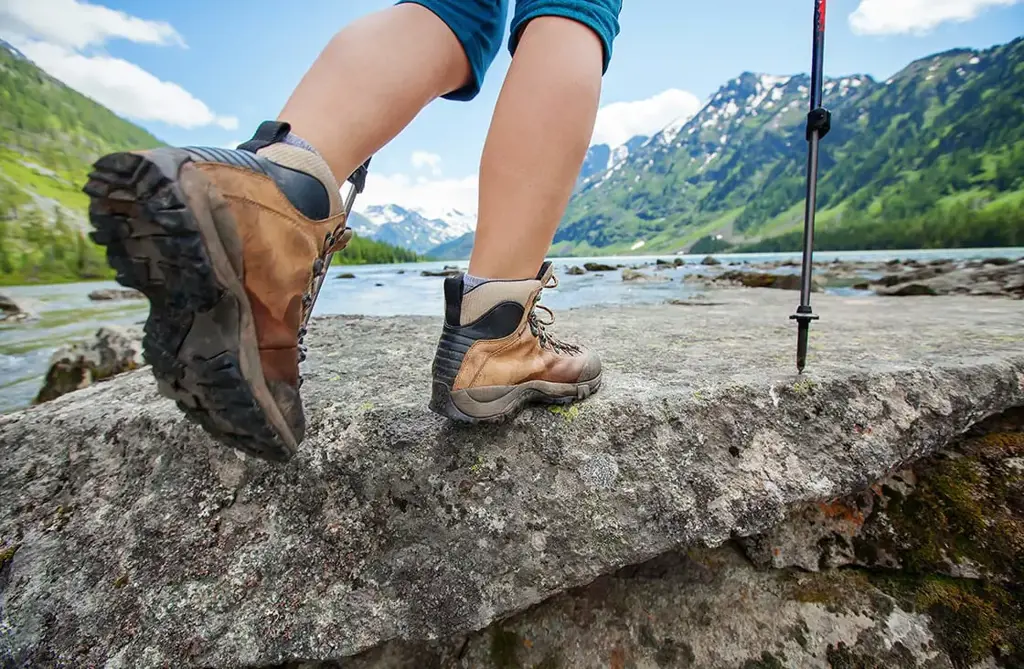
Exploring Bolivia's diverse landscapes requires the right kind of footwear to tackle the various terrains. From the high-altitude mountains to the dense rainforests, the footwear you choose can greatly impact your comfort and safety during your adventures. In this article, we will discuss the different types of footwear that are best suited for exploring Bolivia's various terrains.
When considering footwear for Bolivia, it's important to keep in mind the different terrains you may encounter. Bolivia is home to the Andes Mountains, the Amazon Rainforest, and the Salar de Uyuni, among other natural wonders. Each of these terrains requires different types of footwear to navigate safely and comfortably.
For hiking in the Andes Mountains, a sturdy pair of hiking boots is essential. The terrain in the mountains can be rugged and uneven, so you need footwear that provides ankle support and stability. Look for boots with a good tread that can grip slippery or loose surfaces. Additionally, make sure the boots are waterproof to keep your feet dry and protected from the elements.
In the Amazon Rainforest, you'll need footwear that can handle wet and muddy conditions. Opt for waterproof hiking shoes or boots that have breathable materials to prevent your feet from getting too hot and sweaty. The rainforest is also home to many insects and critters, so consider wearing shoes with closed toes to protect your feet from bites and stings.
If you plan on visiting the Salar de Uyuni, the largest salt flat in the world, a pair of comfortable walking shoes or sneakers will suffice. The salt flat is relatively flat and doesn't require heavy-duty footwear. However, it's important to note that the salt can be abrasive, so wear shoes with good traction and avoid wearing shoes with open mesh that can easily get filled with salt crystals.
In addition to choosing the right type of footwear, it's also important to break in your shoes before embarking on your Bolivia expedition. Wear them around the house, on short walks, and on local hikes to ensure they fit well and are comfortable. This will help prevent blisters and foot pain during your adventure.
Finally, always consider the weather and season when choosing footwear for Bolivia. Bolivia has distinct seasons, and the weather can vary greatly depending on the region and altitude. For example, the rainy season in the rainforest is different from the dry season in the mountains. Consider bringing extra pairs of socks, waterproof covers, or gaiters to protect your feet in extreme weather conditions.
In conclusion, exploring Bolivia's various terrains requires the right type of footwear. For hiking in the mountains, choose sturdy hiking boots with ankle support. In the rainforest, opt for waterproof hiking shoes or boots with closed toes. When visiting the Salar de Uyuni, opt for comfortable walking shoes with good traction. Don't forget to break in your shoes before your trip and consider the weather and season when choosing footwear. Taking these factors into account will ensure a safe and comfortable adventure in Bolivia's beautiful landscapes.
Essential Items to Pack for a Mission Trip to Haiti
You may want to see also

Are there any specific medical or health supplies that should be included in a packing list for Bolivia?
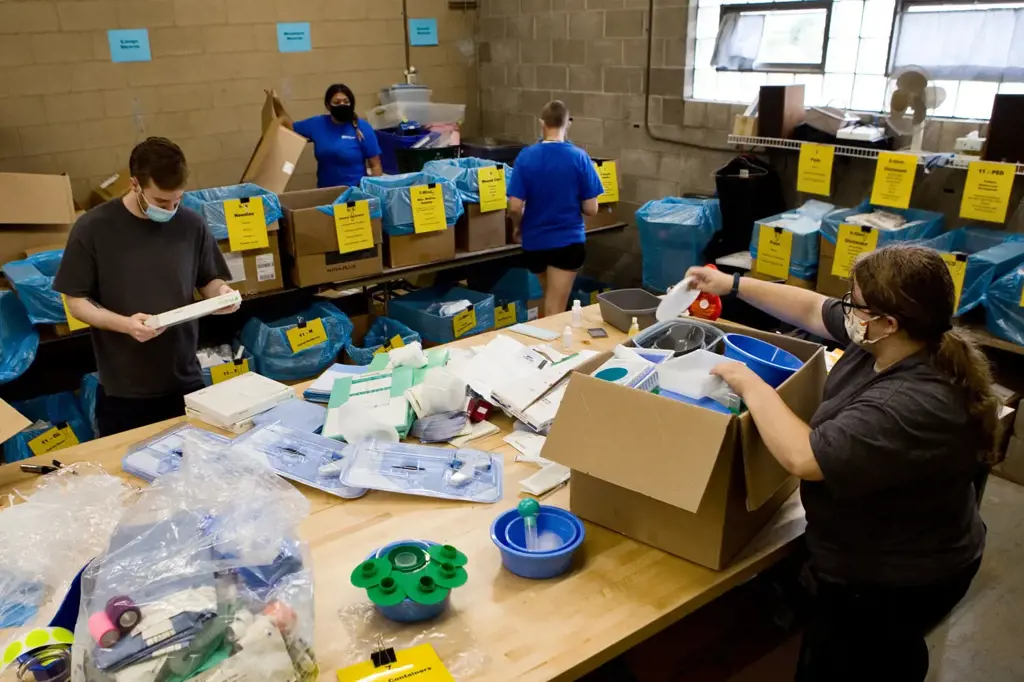
When traveling to Bolivia, it's important to take into consideration the specific medical and health supplies that should be included in your packing list. Bolivia is a beautiful country with a diverse landscape, but it also has its share of health risks and medical needs that should be addressed. Here are some essential items you should consider including in your packing list for Bolivia:
- Medications: If you have any pre-existing medical conditions, it's crucial to pack enough of your regular medications to last the duration of your trip. It's also a good idea to bring a copy of your prescription, as well as a letter from your doctor explaining why you need these medications. This can be useful in case you lose your medication or need more while in Bolivia.
- First aid kit: A well-stocked first aid kit is essential for any travel destination, and Bolivia is no exception. Make sure to include basic items such as band-aids, antiseptic wipes, pain relievers, and any specific medications or supplies you may need for your personal health needs. Additionally, consider including items like diarrhea medication, antacids, and insect repellent to address common travel-related ailments.
- Water purification system: It's important to note that the tap water in Bolivia is not safe to drink. Therefore, it's wise to bring a water purification system with you or use bottled water for drinking, brushing your teeth, and cooking. Portable water filters or water purification tablets can be good options for ensuring you have access to safe drinking water throughout your trip.
- Sunscreen and insect repellent: Bolivia has various climates, ranging from high-altitude regions to tropical rainforests. Regardless of where you plan to visit, it's important to protect your skin from the sun's harmful rays and prevent insect bites. Pack a good quality sunscreen with a high SPF, as well as a insect repellent containing DEET to keep mosquitoes and other insects at bay.
- Altitude sickness remedies: Bolivia has many high-altitude destinations such as La Paz and Lake Titicaca. If you plan to visit these areas, it's crucial to be prepared for altitude sickness. Some common remedies for altitude sickness include medications like acetazolamide, as well as natural remedies like coca tea or candies made from coca leaves. It's advisable to consult with your doctor before taking any medications or herbal remedies for altitude sickness.
- Adequate travel insurance: While not a physical item, having comprehensive travel insurance is crucial when visiting Bolivia. This ensures that you'll be covered for any unexpected medical expenses or emergencies that may arise during your trip. Look for a policy that includes coverage for medical evacuations, hospital stays, and repatriation, as well as cancellation and trip interruption coverage for peace of mind.
In conclusion, when packing for Bolivia, it's essential to consider the specific medical and health supplies you'll need for your trip. From medications to altitude sickness remedies and sun protection, being prepared can help ensure a safe and healthy journey. Remember to consult with your doctor before traveling and always prioritize your health and well-being while exploring this beautiful country.
Carnival Cruise Packing Checklist: Essential Items to Bring on Your Vacation
You may want to see also

What type of electronics or gadgets should be considered when packing for Bolivia?
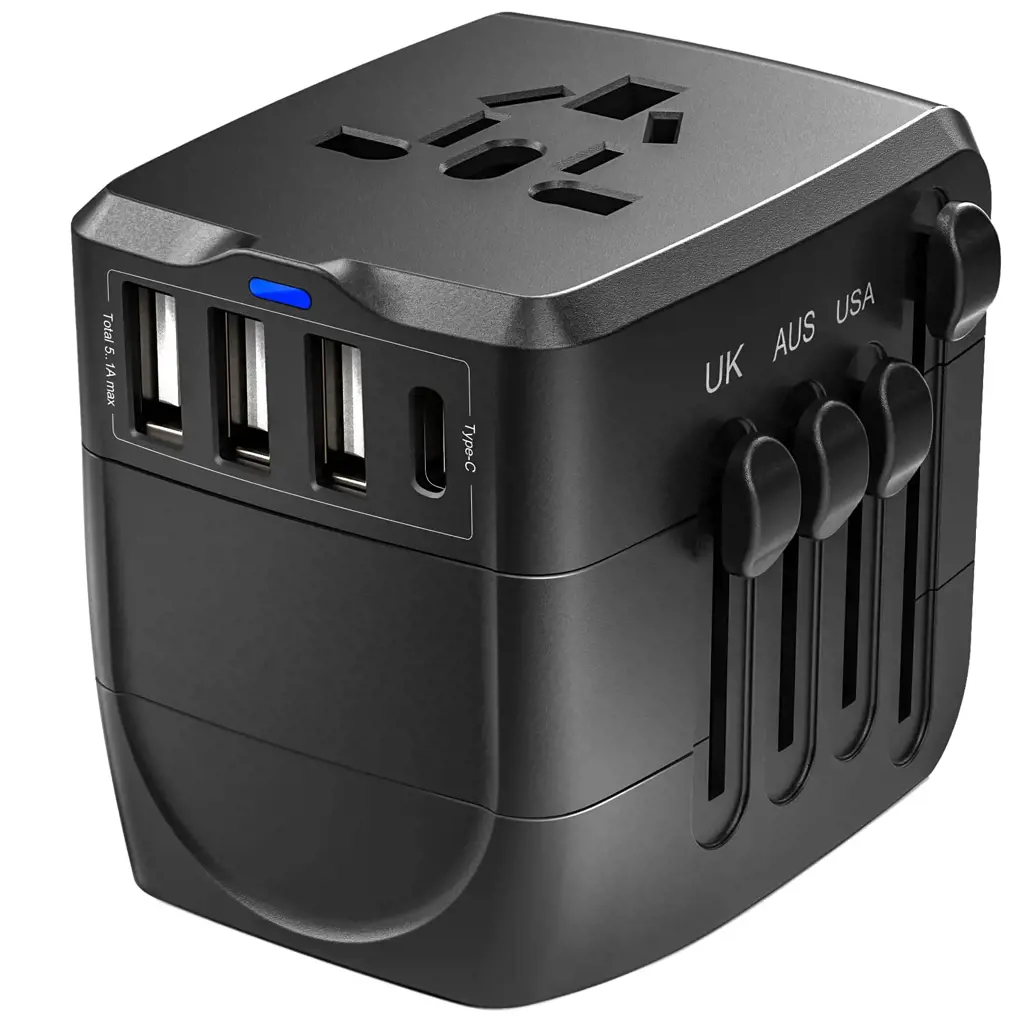
When packing for a trip to Bolivia, it's important to consider the types of electronics and gadgets that will be useful and necessary. Whether you're exploring the vibrant city of La Paz or venturing into the stunning landscapes of Uyuni Salt Flats, having the right electronics can greatly enhance your experience. Here are some electronics and gadgets you should consider packing for your trip to Bolivia:
- Camera: Bolivia is known for its breathtaking landscapes and unique cultural experiences. Having a high-quality camera will allow you to capture these moments in stunning detail. Whether you prefer a DSLR or a compact camera, make sure to pack extra batteries and memory cards to avoid running out of storage.
- Power bank: Bolivia may have intermittent power supply in some remote areas or during certain times of the day. Having a power bank will ensure that you can recharge your electronics on the go. Look for a power bank with a high capacity to keep your devices charged throughout the day.
- Universal adapter: Bolivia uses different plug types than many other countries. It's essential to pack a universal adapter to charge your electronics. This will allow you to use your chargers and other electronic devices without any issues.
- Portable Wi-Fi hotspot: While many hotels and cafes in Bolivia offer Wi-Fi, the quality and reliability can vary. If you rely heavily on internet access for navigation, communication, or work, consider bringing a portable Wi-Fi hotspot. This will ensure that you have a secure and reliable connection wherever you go.
- Portable speaker: Whether you're camping in the Andean mountains or relaxing by the shores of Lake Titicaca, a portable speaker can add a touch of entertainment to your trip. You can enjoy your favorite music or podcasts while immersing yourself in Bolivia's natural beauty.
- E-reader or tablet: If you're an avid reader or enjoy watching movies or TV shows during your downtime, consider bringing an e-reader or tablet. This will allow you to carry a library of books or access your favorite shows without adding extra weight to your luggage.
- GPS device: Bolivia's remote and rugged landscapes make it an ideal destination for outdoor adventurers. If you plan on hiking, biking, or exploring off-the-beaten-path destinations, consider packing a GPS device. This will help you navigate accurately and ensure you don't get lost.
- Portable water purifier: It's essential to stay hydrated while traveling in Bolivia. However, tap water may not always be safe to drink. To avoid buying bottled water every time, consider investing in a portable water purifier. This will allow you to purify water from any source and stay hydrated wherever you go.
- Noise-canceling headphones: Bolivia can be a lively and bustling country, especially in cities like La Paz. If you're a light sleeper or prefer some peace and quiet while traveling, pack a pair of noise-canceling headphones. These will help you block out unwanted noise and create a peaceful environment.
- Portable solar charger: If you plan on spending extended periods in remote areas without access to electricity, a portable solar charger can be a lifesaver. It will allow you to harness the power of the sun to charge your devices, ensuring you have power even in the most off-grid locations.
Overall, packing the right electronics and gadgets can greatly enhance your travel experience in Bolivia. Consider the unique needs of your trip and choose the electronics that will make your journey more enjoyable and convenient. From capturing stunning photographs to staying connected and entertained, these gadgets will help you make the most of your time in Bolivia.
Essential Items to Pack for a Memorable Week in the Maldives
You may want to see also
Frequently asked questions
When packing for a trip to Bolivia, it is important to consider the climate and geography of the country. In general, it is best to pack lightweight and breathable clothing, as Bolivia has a varied climate with hot days and cool nights. You should also pack a warm jacket or sweater, as temperatures can drop significantly in higher elevations. Additionally, don't forget to bring comfortable walking shoes as well as a hat, sunglasses, and sunscreen to protect yourself from the strong sun at higher altitudes.
Yes, if you are planning to visit the Bolivian Amazon, you should pack some specific items to ensure your comfort and safety. First and foremost, it is essential to bring insect repellent to protect yourself from mosquitoes and other insects that are prevalent in the jungle. It is also advisable to pack lightweight, long-sleeved shirts and long pants to provide protection against insects and the sun. Additionally, a good pair of hiking boots or sturdy shoes is recommended, as well as a rain jacket or poncho to stay dry during potential rain showers.
Yes, when packing for Bolivia, it is important to consider the conservative nature of the culture, especially in more traditional and indigenous areas. It is advisable to pack modest clothing that covers the shoulders and knees, particularly when visiting rural communities or religious sites. This means avoiding tank tops, shorts, or revealing clothing. It is also a good idea to respect local customs and traditions by dressing appropriately. It is always better to be conservative and respectful when it comes to clothing choices while traveling in Bolivia.



